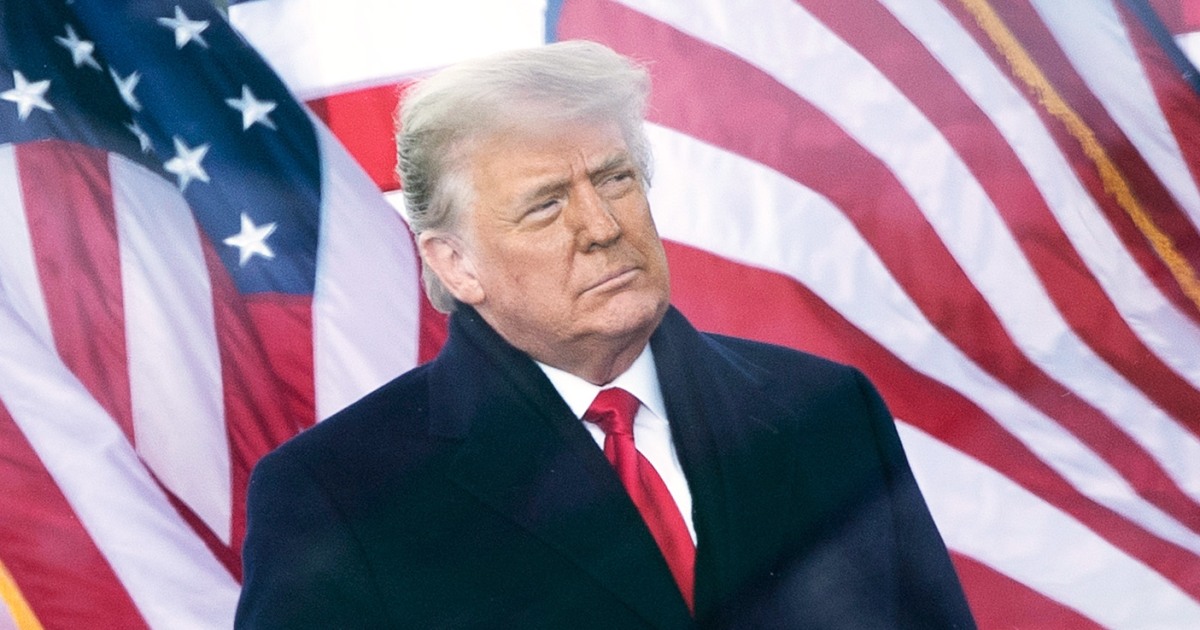MagicMike
Platinum Member
Nice screed intheButtAgain but as usual you don't have any fucking idea what you are nattering on about.We see many of our liberals railing against the Trump legal team’s contention that the President is supposed to be immune from the nonsensical criminal charges brought by the current Administration’s DOJ and its misnamed “special counsel.”
It may be that the legal arguments for that position could fail. But the arguments against it — as offered by many of our liberals — are ignorant and quite insipid.
They don’t seem to understand (on any level) some of the more refined and nuanced positions made by the Trump legal team. Too bad. The liberals’ counter-arguments might carry some weight if they’d honestly address those legal points. But, they don’t. They don’t even try.
I suspect it’s because our liberals are too dismissive and too ignorant.
For future reference, here is a link to the Trump brief on his claims for immunity:
DocumentCloud
www.documentcloud.org
One of the more interesting facets of the arguments made in support of extending Presidential immunity to “criminal” cases involves consideration of the import of Trump’s Senate acquittal in both of his impeachments. This involves a familiar concept in an unfamiliar setting: double jeopardy.
Good stuff. Well worth the read and some actual consideration.
You have apparently forgotten Mitch McConnel's statement after The Senate chose not to convict on the second impeachment.
He stated that even though The Senate believed it lacked the constitutional authority to convict him after he has officially left office....we still had a court system that could try and convict him.
Another EPIC FAIL at logic skippy.
If President Trump were still in office, I would have carefully considered whether the House managers proved their specific charge.
By the strict criminal standard, the president's speech probably was not incitement.
However, in the context of impeachment, the Senate might have decided this was acceptable shorthand for the reckless actions that preceded the riot.
But in this case, that question is moot. Because former President Trump is constitutionally not eligible for conviction.
There is no doubt this is a very close question. Donald Trump was the president when the House voted, though not when the House chose to deliver the papers.
Brilliant scholars argue both sides of the jurisdictional question. The text is legitimately ambiguous. I respect my colleagues who have reached either conclusion.
But after intense reflection, I believe the best constitutional reading shows that Article II, Section 4 exhausts the set of persons who can legitimately be impeached, tried, or convicted. The president, vice president and civil officers.
We have no power to convict and disqualify a former officeholder who is now a private citizen.
Here is Article II, Section 4:
"The President, Vice President and all civil Officers of the United States, shall be removed from Office on Impeachment for, and Conviction of, Treason, Bribery, or other high Crimes and Misdemeanors."
Now, everyone basically agrees that the second half of that sentence exhausts the legitimate grounds for conviction.
The debates around the Constitution's framing make that clear. Congress cannot convict for reasons besides those.
It therefore follows that the list of persons in that same sentence is also exhaustive. There is no reason why one list would be exhaustive but the other would not.
Article II, Section 4 must limit both why impeachment and conviction can occur – and to whom.
If this provision does not limit the impeachment and conviction powers, then it has no limits at all.
The House's "sole power of Impeachment" and the Senate's "sole Power to try all Impeachments" would create an unlimited circular logic, empowering Congress to ban any private citizen from federal office.
This is an incredible claim. But it is the argument the House managers seemed to make. One manager said the House and Senate have "absolute, unqualified ... jurisdictional power."
That was very honest. Because there is no limiting principle in the constitutional text that would empower the Senate to convict former officers that would not also let them convict and disqualify any private citizen.
An absurd end result to which no one subscribes.
Article II, Section 4 must have force. It tells us the president, vice president and civil officers may be impeached and convicted. Donald Trump is no longer the president.
Likewise, the provision states that officers subject to impeachment and conviction "shall be removed from Office" if convicted.
Shall."
As Justice Story explained, "the Senate, [upon] conviction, [is] bound, in all cases, to enter a judgment of removal from office." Removal is mandatory upon conviction.
Clearly, he explained, that mandatory sentence cannot be applied to somebody who has left office.
The entire process revolves around removal. If removal becomes impossible, conviction becomes insensible.
In one light, it certainly does seem counterintuitive that an officeholder can elude Senate conviction by resignation or expiration of term.
But this just underscores that impeachment was never meant to be the final forum for American justice.
Impeachment, conviction, and removal are a specific intra-governmental safety valve. It is not the criminal justice system, where individual accountability is the paramount goal.
Indeed, Justice Story specifically reminded that while former officials were not eligible for impeachment or conviction, they were – and this is extremely important – "still liable to be tried and punished in the ordinary tribunals of justice."
Put anther way, in the language of today: President Trump is still liable for everything he did while he was in office, as an ordinary citizen, unless the statute of limitations has run, still liable for everything he did while in office, didn't get away with anything yet – yet.
We have a criminal justice system in this country. We have civil litigation. And former presidents are not immune from being held accountable by either one.









